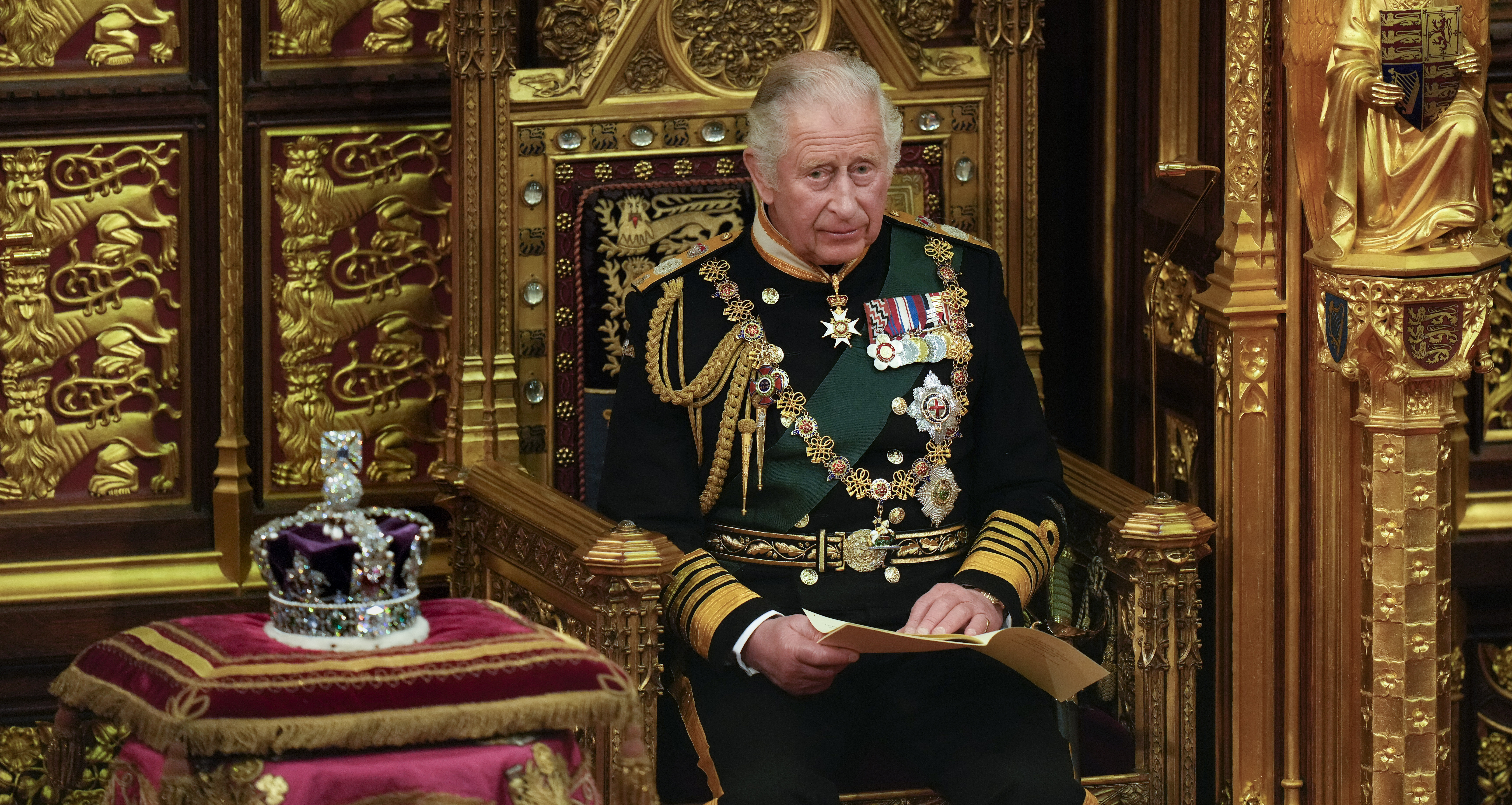On Saturday, King Charles the Third, the hereditary king of this and many other realms, will be crowned. The descendant of Norman warlords, he will be anointed with holy oil away from profane stares, have a crown made of solid gold placed upon his head, and receive the acclamation of his liege subjects.
Amid the ubiquitous and mundane media coverage, it is easy to lose sight of how extraordinary it is that such a thing can still occur. The United Kingdom is the last European monarchy to practice the coronation rite, now only shared in its Christian form with the Kingdom of Tonga in the South Pacific. Even before the French Revolution, enlightened opinion in Europe made light of the idea that sovereigns received their temporal power through supernatural ceremonials. To hold a coronation in the 21st century is an open affront to modernity, a public rejection of the spirit of our age.
The last coronation took place in the twilight of the imperial age, when the mirage of neo-Elizabethan splendour still held. Much has happened since, so the task of this iteration’s organisers has been correspondingly harder; but they have not always succeeded in walking the fine line between modernisation and tweeness.
Much of the service’s language, which reached its stable form in the Stuart era, has been rewritten in contemporary churchofenglandese. The statutory oath to “maintain in the United Kingdom the Protestant Reformed Religion established by law” will be prefaced by an apologetic declaration that the Church of England “will seek to foster an environment in which people of all faiths and beliefs may live freely”.
Perhaps most jarring of all is the replacement of the homage and swearing of fealty by representative peers, itself a compromise measure to cope with the massive growth of the size of the Victorian aristocracy, with the “Homage of the People”. A measure clearly intended to emphasise the democratic nature of modern monarchy, it instead manages to be both embarrassing and vaguely authoritarian. This was an unforced error: no one would have minded the Marquess of Winchester kneeling before the throne on behalf of his rank, but even many soft monarchists baulk at the idea of mumbling an oath in front of the television.
The service will end with “the Leaders and Representatives of the Faith Communities”— a telling bit of public sector jargon — shouting in unison that “as neighbours in faith, we acknowledge the value of public service.”
And somewhere in between all of this, Charles Philip Arthur George the man will be clothed in a linen tunic and a robe of gold; he will be presented with a Bible and spurs and a sword and another robe and a spectre and an orb and a crown, and he will be anointed with vegan holy oil from the Holy Land. He will be crowned to the sound Sir Hubert Parry’s orchestration for I Was Glad and to a fanfare composed by a German for the anniversary of an Austrian orchestra and of another anthem by the composer of Cats.
In other words, the coronation liturgy will reflect the Britain of the 21st century, in all of its contradictions. This is, after all, a country with an aristocracy chosen through both primogeniture and by the prime minister among third sector executives. A country whose most democratic public honour is named after an empire which no longer exists and whose legacy many of the country’s leaders feel the need to disavow.
This Coronation will feature a retired accountant from Lincolnshire carrying the Royal Standard because 34 of his patrilineal ancestors performed feudal services in previous ceremonies, but whose participation was only confirmed after he made an appeal for his hereditary rights in the Daily Telegraph. He will share a place of honour in the procession with a retired children’s television presenter born in Trinidad and Tobago.
Are these the last convulsions of an incoherent order which was hollowed out long ago by the decline of Christianity and the end of Britain as a world power? Or it is a reaffirmation of a British body politic which has weathered the ages, even if it has to be cloaked behind the blandest of modern management-speak?
Like many, I hope for the latter but fear it will be the former. But whatever happens in the future — and the Coronation will be entrancing and embarrassing and mystical and confusing and impressive and anachronistic and all of these things at the same time — you will remember where you were when you saw it, when for the 39th time since the Normans crossed the English Channel, a descendant of William the Conqueror enters Westminster Abbey, as an ordinary man, to fulfil his destiny.











Join the discussion
Join like minded readers that support our journalism by becoming a paid subscriber
To join the discussion in the comments, become a paid subscriber.
Join like minded readers that support our journalism, read unlimited articles and enjoy other subscriber-only benefits.
Subscribe